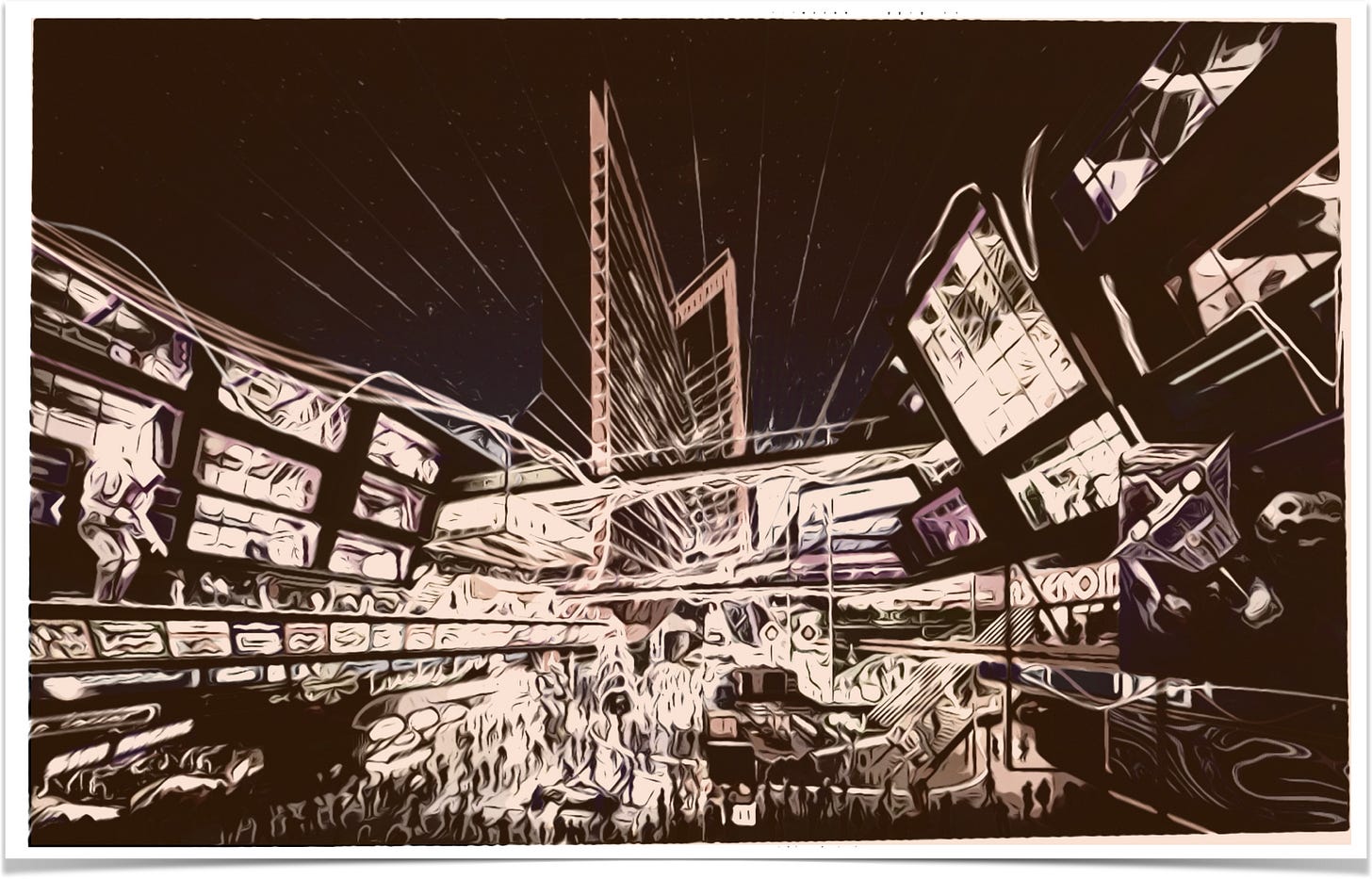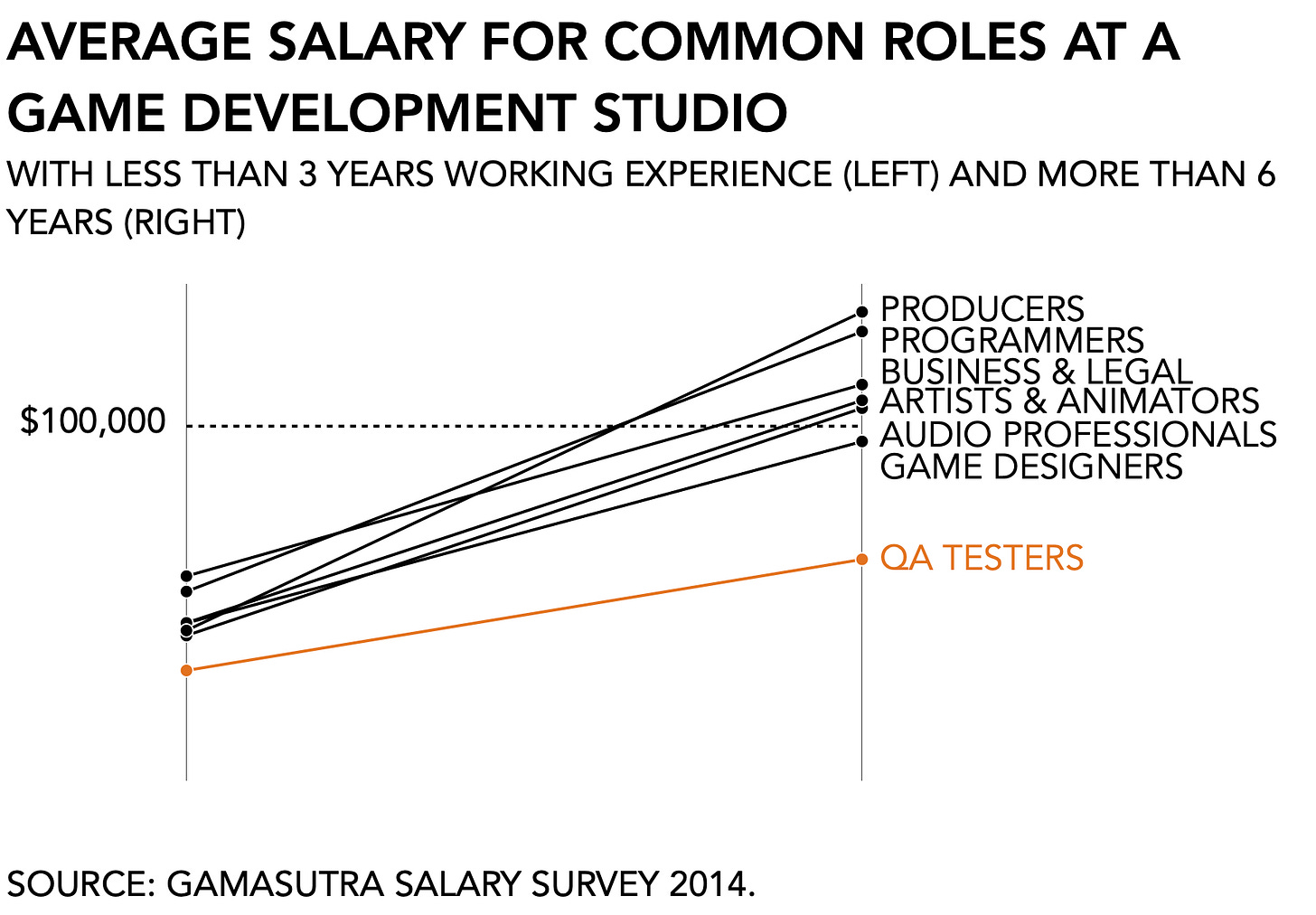The McDonaldization of gaming VCs
Big money, no whammies
My heart is broken and I have no jovial intro this week.
💔
BIG READ: The McDonaldization of gaming venture capital
After first discovering video games at the start of the pandemic, the growing interest among some of the biggest venture funds will impact the next generation of interactive content. I say this, of course, because just last week Andreesen Horrowitz, or a16z, announced its $600 million GAMES FUND ONE.
The entry and commitment of large venture funds in gaming isn’t necessarily a bad thing.
For one, the industry has grown rapidly, quadrupling in size in under a decade, from $52 billion in 2012 to $219 billion in 2021. Long before the pandemic super-charged consumer demand for interactive entertainment did the economics of video games become vastly more difficult. Sure enough, the tools to make games have become more abundant and the upgrade to Unreal Engine 5 significantly lowers the barriers for creatives of all sizes. But with a glut of content especially on PC and mobile, the ability to market games has steadily become more difficult.
Second, I’ve also argued that the incumbents and entry of non-endemic organizations (e.g., media, advertisers, brands) will stifle innovation. Married to a more conservative interpretation of what entertainment should look like and how it needs to behave to attract ad dollars, non-endemics will make much of it look and taste like vanilla. And as the industry continues to consolidate, we can expect smaller, riskier, not-quite-completed projects to get shelved as newly-minted parent companies focus on everyone’s favorite franchises.
Access to vast amounts of capital to build the next generation of IP and excitement will come from VCs. Certainly, the industry’s inability to keep up with demand during the pandemic, on top of blistering growth, has made it even more tempting for mid-level managers from large publishers to try their luck and has resulted in somewhat of an exodus of talent.
After smaller gaming-focused VCs helped fuel and grow the business, the entry of large generalist funds was inevitable, of course. After years of remaining on the sidelines as more conventional forms of amusement, it’s encouraging that more money is now available to creatives in gaming.
Highlighted in orange are the generalist and tech funds. The VCs that specialize in gaming are shown in white. (Disclosure: I’m an advisor to Makers Fund, which manages $960 million across its three funds.)
I have three observations. First, this shift significantly raises the stakes. Managing to secure funding from one of the big firms is akin to an indie artist signing with a major label: it puts you on the map. You get your picture taken, Venture Beat and TechCrunch write about you, and your spouse/parents/colleagues will be ever so proud.
An important reason why startups tie themselves to large organizations is because of their access to an ostensibly enormous network of resources and industry partners that smaller funds cannot manage. That depends on your own ability to make use of that network, of course. After all, you’re but a single line item in a massive venture capitalist’s spreadsheet.
But expectations rise, too. Now that you’re part of a select few that get their idea funded, you’re going to have to deliver. The bigger the fund, the simpler the math. Or, as it was once told to me:
“Anything less than a billion we consider a failure.”
Second, the scattershot approach employed by large firms means you can expect a proportionate amount of attention. As one of the largest venture funds in the space, a16z’s entry is an important validation of gaming as a mainstream form of entertainment. But it is hard to ignore the obvious allocation of effort. Despite an encouraging sizzle reel, the gaming fund's moment in the spotlight was cut a bit short this week when a16z switched over and announced its $3.5 billion crypto fund.
My third observation is a noticeable absence of news about funding innovative ideas and efforts. Previously the industry focused on a narrow demographic, so I’d expect a push into the mainstream to be accompanied by some amount of financing for less common but equally necessary initiatives. Do we really need more MOBA esports gaming chair covers? Oh really dude, you’re making a shooter game? Oh wow, a white male protagonist saves the day. So new. Such wow.
I’m not expecting venture firms to be the vanguard in some push to make the industry more inclusive. But if with this much money available, we should be expecting more female-led studios, right? Where is the funding for diverse leadership teams?
The games industry needs different types of VCs. With the growth, popularization, recognition, and, now, funding of gaming, the industry is going through an important transition. More means different. It has to.
NEWS
Valve to host The International 2022 in Singapore
After more than a decade, the annual tournament for Dota 2 is finally scheduled to take place in South East Asia. The event is known for its large prize pools, which are made up largely of fan contributions, and is planned to take place in October.
Relatedly, hotel chain Fairmont and Razer, which makes high-end gaming equipment, teamed up to offer “luxury gaming” suites. There’s a “Gamer & Streamer Suite,” a “Console Lounge,” and a “Mercury Suite” which features a limited-edition Hello Kitty & Friends chair. If that doesn’t sound enticing enough, the hotel also offers a charcuterie and cheese plate designed especially for gamers, which looks just like every other plate with meat and cheese but alright.
If Singapore is too far, or Dota 2 too hard, we can always meet up in one of the “retro-futurist fever dreams straight out of Blade Runner designs” of the Atari Hotels planned to open in Las Vegas.
Unionization begins
Nature is healing. After a string of disasters across the Activision Blizzard empire in the past two years, ranging from wildly inappropriate behavior to corporate inaction, a small number of employees has now voted to join the Communications Workers of America.
It’s a fragile start, because it only involves roughly two dozen workers and, more importantly, it’s all people active in quality assurance, or QA. Making sure that the next big release doesn’t suck because it’s riddled with bugs has long been a specter that haunts the growing investments made by large publishers. In fact, right before CD Projekt Red was supposed to ascend and become the king of the next-gen with the release of its Cyberpunk 2077, it didn’t. Instead, it lost 50% of its market value, when its share price dropped from $31 in December 2020 to $16 in January 2021, because the game proved unplayably buggy.
Proper QA determines the fate of game makers (CD Projekt Red currently trades at around $7 a share, ICYMI). But even so, QA testers are valued much lower than everyone else.
[N.B. Yes, this is somewhat dated information, so feel free to send me more recent numbers if you have them.]
Combined with the union formed at game studio Vodeo earlier in the year, we don’t have enough swallows here yet to call it Spring. But change rarely starts at the top, does it?
PLAY/PASS
Play. Pong, apparently, had no code and was built using only hardware circuits. It’s a no-code game dev project but not as you know it. (h/t Benedict Evans)
Pass. Wall Street analysts were unimpressed by GameStop’s entry into the NFT space, stating it is “unlikely to become the preferred solution for console and mobile gamers.”





